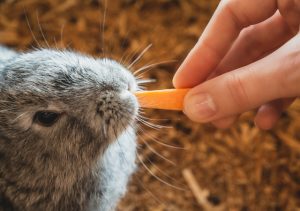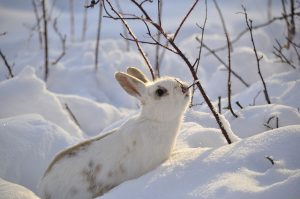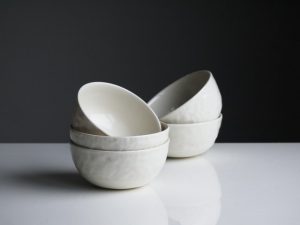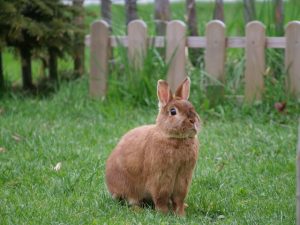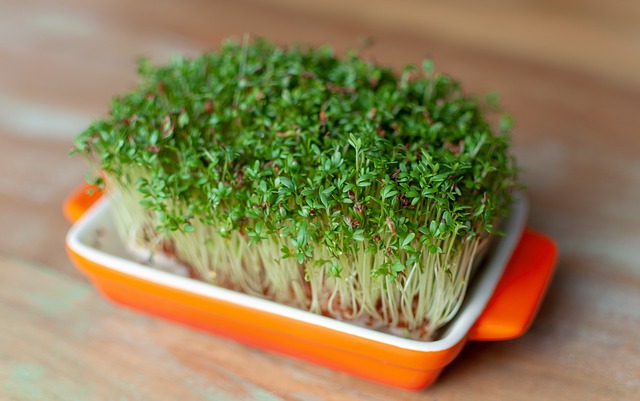
Wild rabbits do not only eat fresh grass, but they also have access to a diverse range of wild plants that supplements their diet and keep themselves healthy.
Contents
When we keep rabbits in captivity, we remove them from their natural environment which as well means the herbs they would eat if they were sick and needed to self-medicate would need to be provided because they cannot search for it themselves.
Providing rabbits with a variety of herbs and greens that they can eat or refuse allows them to balance their own diet according to their natural instincts.
Rabbits are ideal patients for herbal medicines because they are herbivores and eagerly consume their herbal medicine treats!
So, Let's Begin With What Watercress Is.
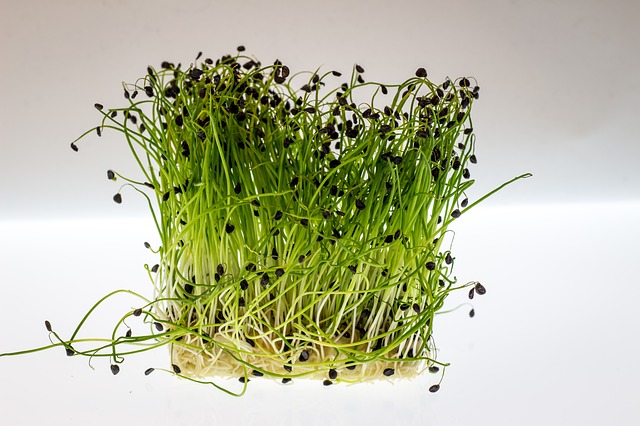
Watercress is an ancient green that may have been a staple of Roman soldiers' diets. It also belongs to the cruciferous family, which includes kale, broccoli, arugula, and Brussels sprouts. Its resurgence is due in part to a growing awareness of its high nutritional value.
Watercress is a perennial plant native to Europe and Asia that grows quickly. It is one of the earliest leaf vegetables known to have been consumed by humans. Watercress and many of its relatives, such as garden cress, mustard, radish, and wasabi, have distinct flavours.
Watercress' hollow stems float in water. The leaf structure is compounded pinnately. Small, white, and green flowers grow in clusters and are frequently visited by insects, particularly hoverflies like Eristalis flies.
What is in Watercress
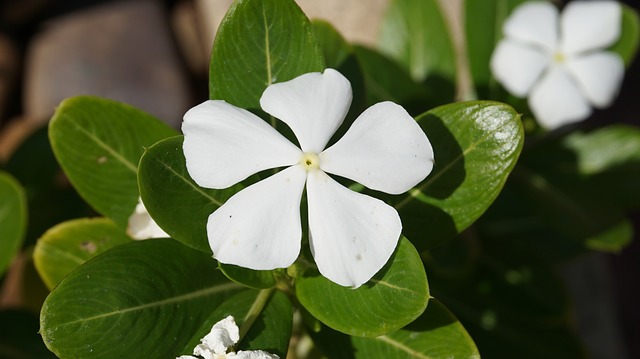
- Vitamin A.
- Vitamin C.
- Vitamin K.
- Potassium.
- Calcium.
- Beta-carotene.
- Carotenoids.
- Magnesium.
Watercress is high in vitamin A, with IOOg providing 420ug (53 percent of RDA) and an 80g portion providing 42 percent of RDA. Watercress contains vitamin A in the form of beta-carotene, which has provitamin A activity, with 6pg beta-carotene equaling I pg vitamin A activity.
Watercress is high in vitamin C, with IOOg providing 62mg (103 percent RDA) and an 80g serving to provide 83 percent RDA.
Watercress is a good source of folate, with 45pg (23 percent RDA) in IOOg and 18 percent RDA in an 80g portion. Folate is a B vitamin that occurs naturally in food. Folate is also known as folic acid, which is a synthetic form of vitamin.
Watercress is an iron source, containing 2.2mg iron per 100g (16% RDA) and 13 percent of the RDA per 80g portion. Watercress is also high in vitamin C, which has been shown to improve non-heme iron absorption.
Watercress contains 170mg (21 percent RDA) of calcium per IOOg or 17 percent RDA per 80g portion. Calcium is required for the normal structure of bones and teeth, nerve and muscle function, blood coagulation, and digestive enzyme function.
Watercress has a low-fat content by nature. However, the little polyunsaturated fat it does have is high in the essential fatty acid alpha-linolenic acid (I 8:3n-3), the parent of the omega-3 fatty acid family.
This may seem gibberish but it's important to understand what watercress contains so you can ensure there's nothing in it that will hurt your furry rabbit friend!
So, with that in mind, will anything in this hurt your rabbit?
Nope! Watercress is completely edible and safe for rabbits. It is safe and one of the vegetables that can be included in their mix of leafy greens. Simply chop it and combine it with other safe vegetables such as:
- romaine lettuce
- basil, kohlrabi
- cilantro, broccoli
- mustard greens
- carrot tops
- collard greens
- dandelion greens
- Escarole
- radicchio,
- Endive
- Wheatgrass
The second issue is going to be the amount in which they can consume. Make a mixture of about six leafy greens, including this vegetable. A full cup of this mixture is enough for a two-pound rabbit.
Watercress is extremely nutritious and will greatly benefit your rabbits. It is high in vitamin K and C, but low in vitamin A, B6, riboflavin, thiamine, and vitamin E, as well as calcium, magnesium, manganese, phosphorus, potassium, and pantothenic acid or vitamin B5.
What Are The Benefits of Watercress?
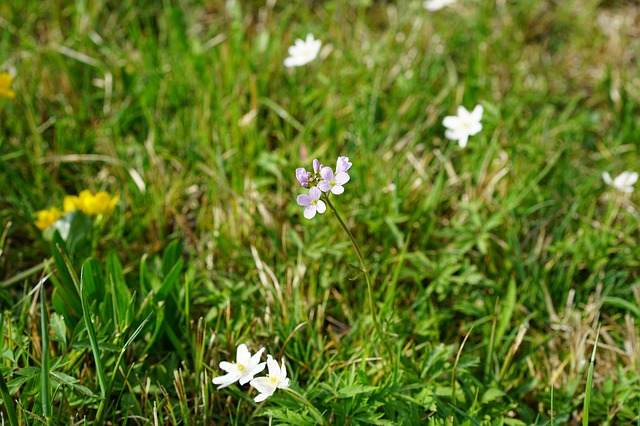
The bottom line, bunnies can have watercress. It is a safe vegetable and can be part of the leafy green mix you feed your rabbits. Besides being quite nutritious, most rabbits happen to love its taste. With that in mind, be cautious not to overdo it because it could cause stomach upsets and diarrhea which is not fun to clean up.
Watercress contains vitamins, minerals, and antioxidants that can be beneficial to one's health. It is high in vitamin A, also known as retinol, which is essential for keeping your retinas healthy and your vision clear. Getting enough vitamin A is also important for maintaining the health of your organs because it is required for cell division.
Watercress is also high in vitamin C, which helps your immune system, heals injuries, and promotes healthy collagen production.
Furthermore, watercress can provide additional health benefits such as:
Cancer Risk Reduction
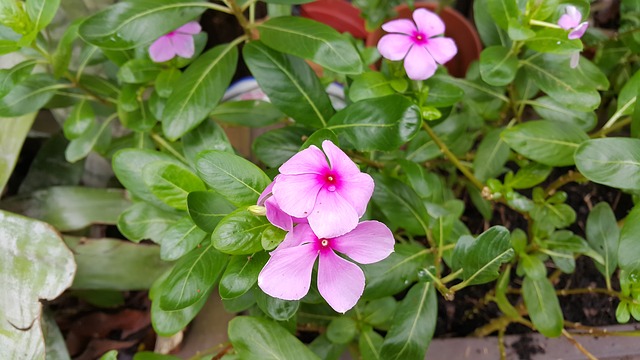
Watercress is high in beta-carotene and other carotenoids. these are also known antioxidants. Carotenoids, like most antioxidants, have been linked to a reduction in free radicals in the body. As a result, there is less oxidative stress and a lower risk of cell damage, cancer, and other chronic diseases such as arthritis.
Improve Heart Health
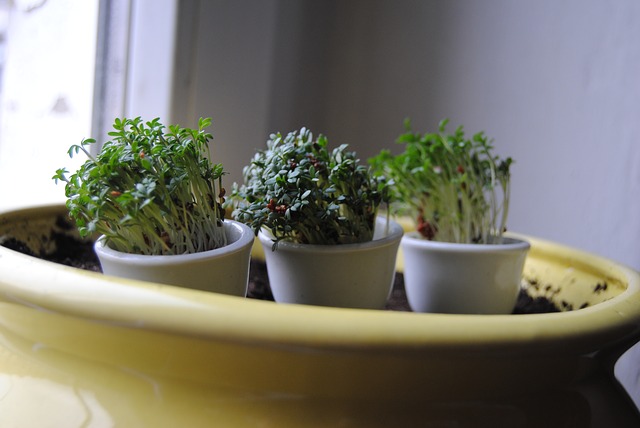
The act of eating watercress can help your heart's health. Antioxidants, specifically carotenoids, have been linked to lower blood pressure, which leads to a lower risk of heart disease and even a lower risk of heart attacks and strokes. Watercress may help lower cholesterol, according to preliminary research.
Support Bone Health
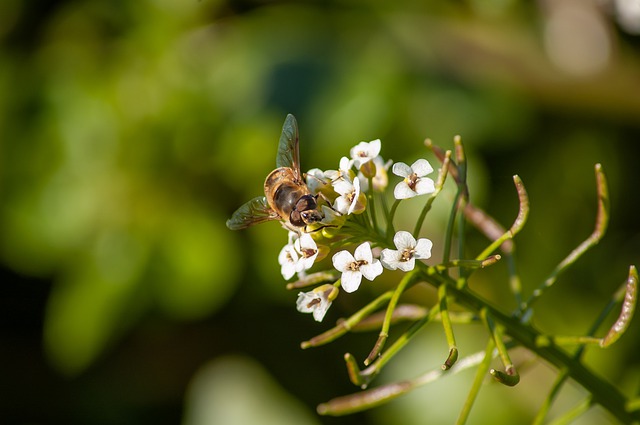
Watercress is high in three minerals that are essential for bone health
- Calcium
- Potassium
- magnesium.
The most common mineral in your body is calcium. If you don't get enough, your bones will gradually weaken, eventually leading to osteoporosis.
Magnesium and potassium have an indirect effect on skeletal health by influencing bone cell growth. Consuming enough of these minerals can help reduce the risk of osteoporosis and ageing complications.
With all that in mind, watercress is also high in potassium, one of the most important minerals in your body. Potassium aids in the regulation of your heartbeat, salt levels, blood pressure, and even the health of your bones.
These are the “human” consumption benefits, can this be applied to rabbit consumption as well?
Summary
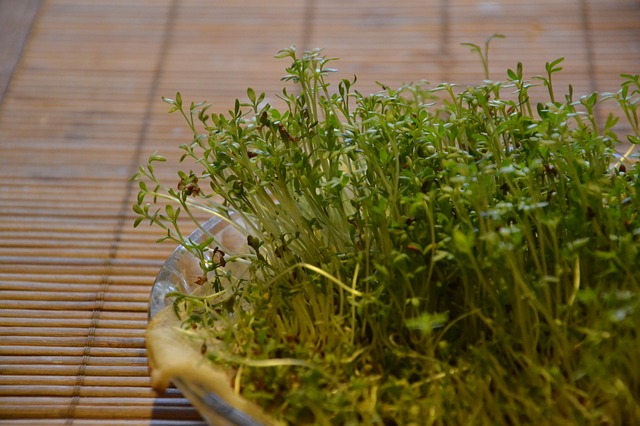
In summary yes!
Watercress is high in vitamin C, which is necessary for rabbits. Vitamin A, beta-carotene, folic acid, riboflavin, and other vitamins are also present. Watercress also contains a lot of minerals like potassium, phosphorus, calcium*, magnesium, and iron.
Prepping
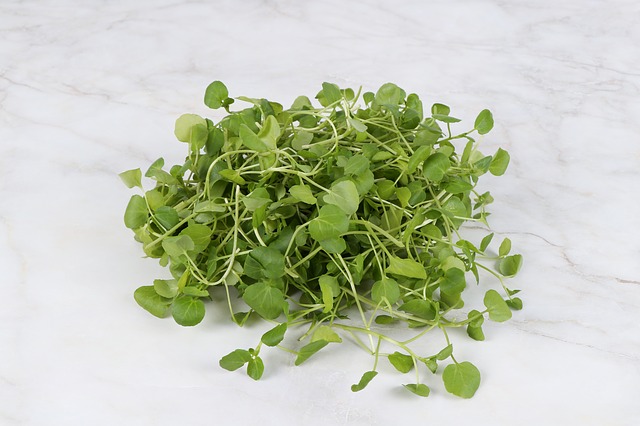
Luckily, there is no 12-step process to preparing this dish for your bunny. The one big thing you should always do is wash the greens before serving them! As well, during that process be sure to take put any brown leaves.
Lastly, serve a nice bowl of greens to your furry friend!
Hopefully, you found this information useful and informative, and with this newfound knowledge, you can now feed your rabbits watercress with no worries or questions of how to proceed with it.


